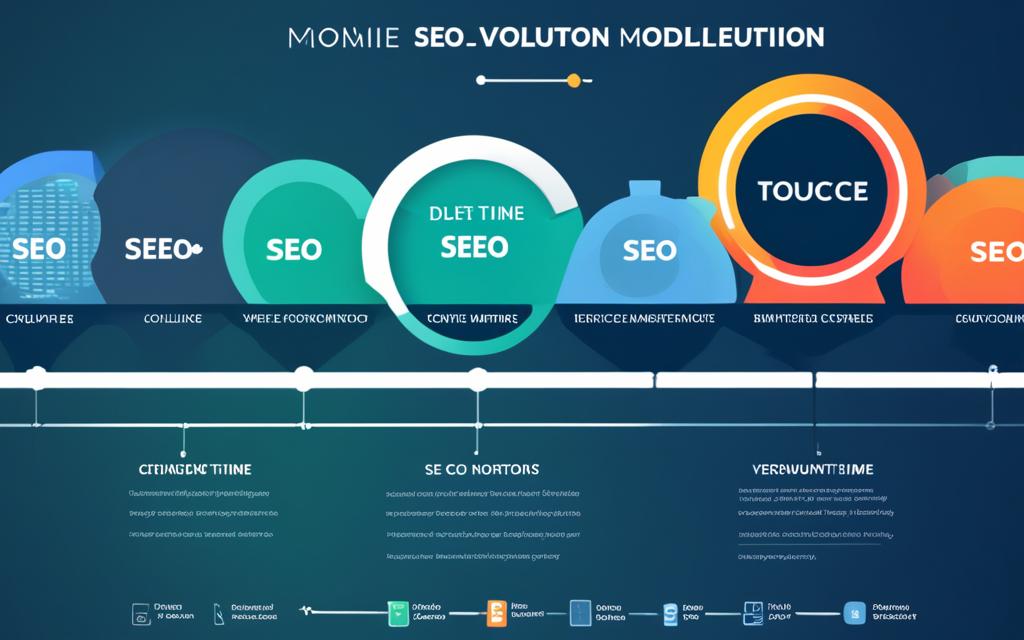Welcome to the world of search engine optimization (SEO), where a well-executed SEO audit can make all the difference in boosting your website’s ranking and improving its overall performance. Conducting an SEO audit allows you to identify and address any technical issues, optimize on-page elements, evaluate your backlink profile, and gain valuable insights from competitor analysis. By following these key steps, you can develop effective content strategies and enhance your online presence for maximum impact.
During the SEO audit process, you will delve into various aspects of your website to ensure that it is optimized for search engine visibility. This includes examining your website’s on-page elements such as meta tags, headings, and content relevancy. Additionally, you will assess technical SEO factors like website speed, mobile-friendliness, and crawlability. Evaluating your backlink profile helps you understand the quality and quantity of external websites linking to your site, while competitor analysis provides insights into their strategies and opportunities for improvement.
When conducted effectively, an SEO audit equips you with the necessary knowledge and actionable insights to optimize your website and improve its visibility in search engine results. By addressing any issues and implementing strategic changes, you can enhance your website’s performance, attract more organic traffic, and ultimately achieve your online goals.
Preparing for an SEO Audit
Before diving into the audit, it’s crucial to prepare yourself and your website. In this section, we will cover essential steps like creating an SEO audit checklist and conducting thorough keyword research to ensure a comprehensive audit.
Creating an SEO Audit Checklist
Having a well-structured SEO audit checklist is vital to ensure that you don’t miss any crucial steps during the audit process. Consider the following key areas to include in your checklist:
- Website architecture and site structure
- Keyword research and optimization
- On-page factors such as meta tags, headings, and content
- Technical SEO elements like XML sitemaps, robots.txt, and canonical tags
- Website speed and mobile optimization
- Backlink profile analysis
- Social media integration and presence
- Local SEO optimization
Customize the checklist to fit your website’s specific needs and goals. This will ensure that you cover all the crucial aspects of your site during the audit.
Conducting Keyword Research
Keyword research is an essential aspect of an SEO audit. It helps you understand the search behavior of your target audience and identify relevant keywords to optimize your website. Follow these steps to conduct effective keyword research:
- Start by brainstorming a list of relevant topics and terms related to your industry or niche.
- Utilize keyword research tools like Google Keyword Planner, SEMrush, or Moz Keyword Explorer to discover popular and relevant keywords.
- Analyze the search volume, competition, and relevance of each keyword to prioritize your optimization efforts.
- Identify long-tail keywords that have less competition but can still drive targeted traffic to your website.
- Consider user intent and search intent when selecting keywords to ensure that your content meets the needs of your target audience.
By conducting thorough keyword research, you’ll gain valuable insights into the keywords that will drive organic traffic and help improve your website’s visibility in search engine results.
Now that you have created an SEO audit checklist and conducted keyword research, you are ready to move on to the next section where we will delve into analyzing on-page elements.
Analyzing On-Page Elements
When it comes to optimizing your website for search engines, paying attention to on-page elements is crucial. These elements include title tags, meta descriptions, URL structure, and keyword optimization. By analyzing and optimizing these components, you can significantly improve your website’s search engine visibility.
Let’s start with title tags. Title tags are the HTML elements that define the title of a web page. They appear as clickable headlines in search engine results. Optimizing your title tags with relevant keywords can help search engines understand the content of your page and improve its ranking.
Next, we have meta descriptions. Meta descriptions provide a brief summary of your web page’s content. While search engines don’t directly use them for ranking purposes, they are essential for enticing users to click through to your site. By crafting compelling and concise meta descriptions that include relevant keywords, you can increase your click-through rate.
URL structure is another crucial on-page element. It refers to the format of your web page’s URLs. A clean and user-friendly URL structure can enhance the usability of your website and make it easier for search engines to crawl and index your pages. Including relevant keywords in your URLs can also provide additional context to search engines.
Last but not least, keyword optimization plays a significant role in on-page SEO. By strategically incorporating relevant keywords throughout your webpage’s content, headings, and image alt attributes, you can signal to search engines that your page is highly relevant to specific search queries.
In conclusion, analyzing and optimizing on-page elements such as title tags, meta descriptions, URL structure, and keyword usage are essential steps in improving your website’s search engine visibility. By implementing best practices for these elements, you can increase your chances of ranking higher in search engine results and attracting more organic traffic to your site.
| On-Page Elements | Importance |
|---|---|
| Title Tags | Help search engines understand the content and improve ranking |
| Meta Descriptions | Entice users to click through to your site and improve click-through rate |
| URL Structure | Enhances website usability and makes crawling and indexing easier |
| Keyword Optimization | Signals relevance to search engines and improves ranking |
Assessing Technical SEO
When it comes to optimizing your website for search engines, technical SEO plays a crucial role in determining your online visibility and rankings. A comprehensive assessment of your website’s technical elements is essential to ensure optimal performance and discover areas that require improvement.
One of the key aspects to evaluate is website crawlability. Search engines rely on crawling to index your web pages, so it’s crucial to ensure that all your important content is accessible. Check for any crawl errors, broken links, or issues that may hinder search engine bots from properly navigating your site.
Page speed optimization is another critical factor in technical SEO. A slow-loading website not only provides a poor user experience but can also negatively impact your search engine rankings. Analyze your website’s loading times and identify any bottlenecks that may be slowing it down. Implementing strategies to improve page speed, such as optimizing images, leveraging browser caching, and minifying CSS and JavaScript files, can significantly enhance your website’s performance.
With the increasing dominance of mobile devices in online browsing, mobile-friendliness has become paramount for SEO. Ensure that your website is responsive and adapts seamlessly to different screen sizes. A mobile-friendly design not only enhances user experience but also boosts your chances of ranking higher in mobile search results.
An XML sitemap is a vital tool for search engines to understand the structure of your website and discover your content more efficiently. Evaluate your XML sitemap and ensure that it accurately represents your website’s pages and hierarchy. Regularly updating and submitting your XML sitemap to search engines is crucial for keeping them informed about any new pages or significant changes on your site.
Optimizing your website’s technical SEO is a continuous process that requires regular monitoring and adjustments. By assessing website crawlability, page speed optimization, mobile-friendliness, and XML sitemap, you can lay a strong foundation for improved search engine performance and online visibility.
| Key Areas to Assess | Actions to Take |
|---|---|
| Website Crawlability | Check for crawl errors and broken links. Ensure proper navigation for search engine bots. |
| Page Speed Optimization | Analyze loading times and identify areas for improvement. Optimize images, leverage browser caching, and minify CSS and JavaScript files. |
| Mobile-Friendliness | Ensure your website is responsive and provides a seamless experience across different devices and screen sizes. |
| XML Sitemap | Evaluate and update your XML sitemap to accurately represent your website’s structure. Submit it regularly to search engines. |
Evaluating Backlink Profile
When it comes to SEO, your backlink profile plays a crucial role in determining your website’s authority and rankings. A strong backlink profile consists of high-quality backlinks from reputable websites that are relevant to your industry or niche.
Link building is the process of acquiring these valuable backlinks to your website. It involves creating content that attracts organic links and reaching out to other website owners for potential collaborations or partnerships. By actively building a diverse and authoritative backlink profile, you can improve your website’s visibility in search engine results pages (SERPs).
However, not all backlinks are created equal. It’s important to assess the quality of backlinks pointing to your site. Search engines scrutinize the relevance and authority of these links to determine their value. Low-quality backlinks, such as those from spammy or irrelevant sites, can harm your website’s reputation and rankings.
One of the key factors to consider when evaluating your backlink profile is the anchor text used in the backlinks. Anchor text is the clickable text that appears in a hyperlink. It provides search engines with context about the linked page. Using relevant anchor text that includes your target keywords helps search engines understand the content and relevance of your webpages.
Building a strong backlink profile requires a strategic approach. Focus on acquiring quality backlinks from authoritative and relevant websites. Ensure that the anchor text used in the backlinks reflects the content of your webpages and includes relevant keywords. A diverse and natural backlink profile will enhance your website’s visibility and organic rankings.
Examples of Anchor Text:
| Anchor Text | Relevance |
|---|---|
| Best SEO practices | Relevant and includes target keywords |
| Click here | Generic and lacks relevance |
| Learn more | Generic and lacks relevance |
| Buy now | Product-oriented and lacks relevance |
By carefully evaluating your backlink profile, prioritizing high-quality backlinks, and optimizing anchor text, you can significantly boost your website’s SEO performance and organic visibility.
Competitor Analysis
Analyzing your competitors’ SEO strategies can provide valuable insights. Understanding what your competitors are doing right and where they may be falling short can help you enhance your own SEO efforts and gain a competitive advantage in search engine rankings.
Competitor analysis involves researching and evaluating your competitors’ online presence, including their website structure, content strategy, keyword targeting, and backlink profile. By conducting thorough competitor research, you can identify areas of opportunity and make informed decisions to improve your own website’s visibility and performance.
Identify your Competitors
The first step in competitor analysis is to identify who your direct competitors are. These are the businesses or websites that offer products or services similar to yours and compete for the same target audience. Use keyword research tools and industry knowledge to compile a list of your main competitors.
Assess their On-Page Elements
Once you have identified your competitors, analyze their on-page elements including meta tags, headings, URL structure, and internal linking. Look for patterns and strategies they are using in their content optimization to improve their organic search visibility.
Study their Keyword Targeting
Keywords play a vital role in SEO. Research and analyze the keywords your competitors are targeting in their content, meta tags, and headings. Identify high-performing keywords they are ranking for and consider incorporating them into your own strategy to attract relevant search traffic.
Evaluate their Backlink Profile
A strong backlink profile is crucial for SEO success. Analyze your competitors’ backlinks to identify their sources and quality. Look for opportunities to secure backlinks from similar high-quality websites to improve your own domain authority and search rankings.
Learn from their Content Strategy
Content is king in the world of SEO. Examine your competitors’ content strategy, including the type of content they publish, frequency of updates, and engagement metrics. Identify gaps in their content and find ways to create unique, valuable content that surpasses what your competitors are offering.
Competitor analysis is an ongoing process. Regularly monitor and revisit your analysis to stay updated on changing trends and strategies in your industry. By leveraging competitor research, you can refine your own SEO efforts and gain a competitive advantage in the increasingly competitive digital landscape.
Tools for SEO Auditing
Utilizing the right tools can streamline and enhance the SEO auditing process. Here, we will introduce you to various SEO auditing tools and keyword research tools that can assist in analyzing your website’s performance and identifying areas for improvement.
1. SEO Auditing Tools:
One of the most critical aspects of SEO auditing is evaluating your website’s on-page elements, technical SEO, and backlink profile. SEO auditing tools provide comprehensive insights and data-driven analysis, helping you identify any SEO issues and opportunities. Some popular SEO auditing tools include:
- Google Search Console: A free tool provided by Google, Search Console allows you to monitor and optimize your website’s presence in search results.
- SEMrush: A powerful tool that offers comprehensive SEO auditing features, including site audits, backlink analysis, and keyword tracking.
- Moz Pro: Moz Pro provides a range of SEO auditing tools, such as site crawlers, keyword research, and link analysis, to optimize your website’s search visibility.
2. Keyword Research Tools:
Keyword research is vital for targeting the right audience and optimizing your content for search engines. These tools help you identify relevant keywords and analyze their search volume, competition, and potential performance. Here are some popular keyword research tools:
- Google Keyword Planner: A free tool by Google that allows you to research keywords and their search volume based on various parameters like location and language.
- Ahrefs: A comprehensive SEO tool that offers keyword research features, including keyword difficulty analysis and content gap analysis.
- SEMrush: Besides SEO auditing, SEMrush provides a robust keyword research tool to find profitable keywords and track their rankings.
By using these SEO auditing tools and keyword research tools, you can gain valuable insights into your website’s performance, identify optimization opportunities, and make data-driven decisions to improve your search rankings. Remember, effective SEO auditing and keyword research are ongoing processes that require regular monitoring and adjustments.
Conclusion
In conclusion, conducting an SEO audit is crucial for enhancing your website’s ranking and performance. By following the steps outlined in this article, you can identify and address issues, optimize your website’s on-page elements, improve technical SEO, evaluate your backlink profile, conduct competitor analysis, and create an action plan for ongoing optimization.
Remember, tracking your improvements over time will help you stay on top of your SEO game and continuously enhance your online presence.
So, don’t wait any longer! Start conducting an SEO audit today and watch your website climb the search engine rankings.







